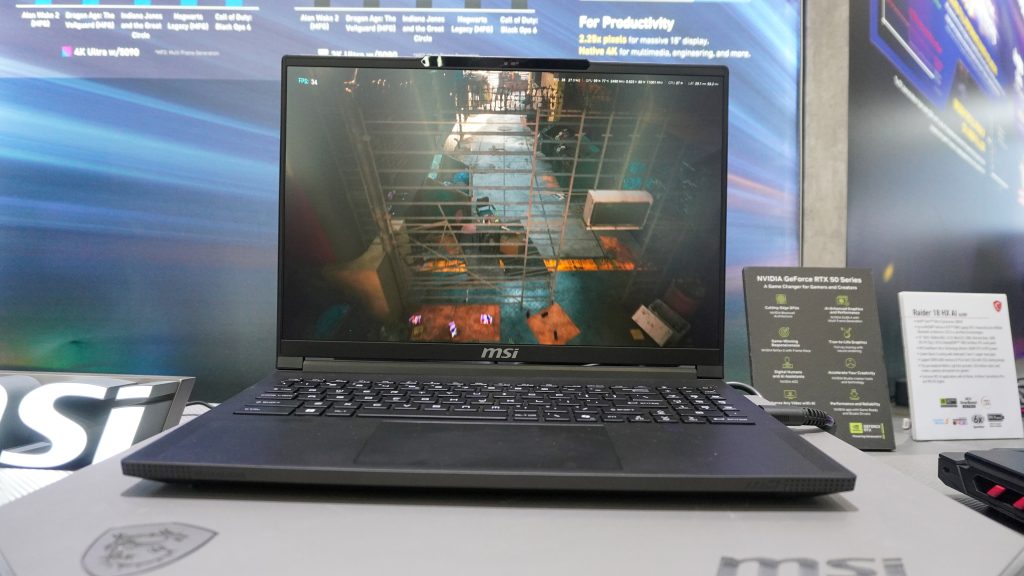So it’s looking like Google AI Mode may become the default option of searching — replacing the traditional search model with generative AI search that scrapes a whole host of webpages to craft an answer.
Yes, Google lead product manager Logan Kilpatrick did walk this back a little, saying that “more AI Mode responses and functionality” are coming to AI Overviews — rather than a straight up replacement. But given how this experiment continues to expand at a lightning pace, it wouldn’t surprise me if this was the ultimate mission.
Just to clarify, wasn’t saying AI Mode is replacing main Search. As Robby and I talked about on Release Notes, exciting to see more AI Mode responses and functionality coming to AI Overviews, which you get from the main search box, and I personally love to see frontier AI…September 8, 2025
Of course, I could go into the huge risk this poses to the ways people find information online, or how this could severely damage the amount of traffic websites that rely on Google search get (using tactics known as SEO).
You may like
But I want to look at it a different way and ask one simple question: if this is to be the way people search for product recommendations, how good are Google AI mode’s recommendations really?
So, ignoring the advice I normally give people, which is to go to buying guides like our best gaming laptops list for authentic recommendations, what happens when you just use AI?
And what follows is a cautionary tale — if you trust Google’s AI mode to help you pick consumer tech, you’re probably wasting your money. Let me explain.
This isn’t sour grapes
Am I annoyed that generative AI search is taking traffic away from consumer tech news sites like our own? More than a little, yeah. But this is about me, and this isn’t why I’m running this experiment over the next few weeks.
The reason why I’m running it is that more and more, this is becoming the way people are searching for information, and I’m disappointed with the recommendations it gives. Our life’s work is to make sure you have all the information, hard-tested advice and know-how to make the best buying decisions.
The test
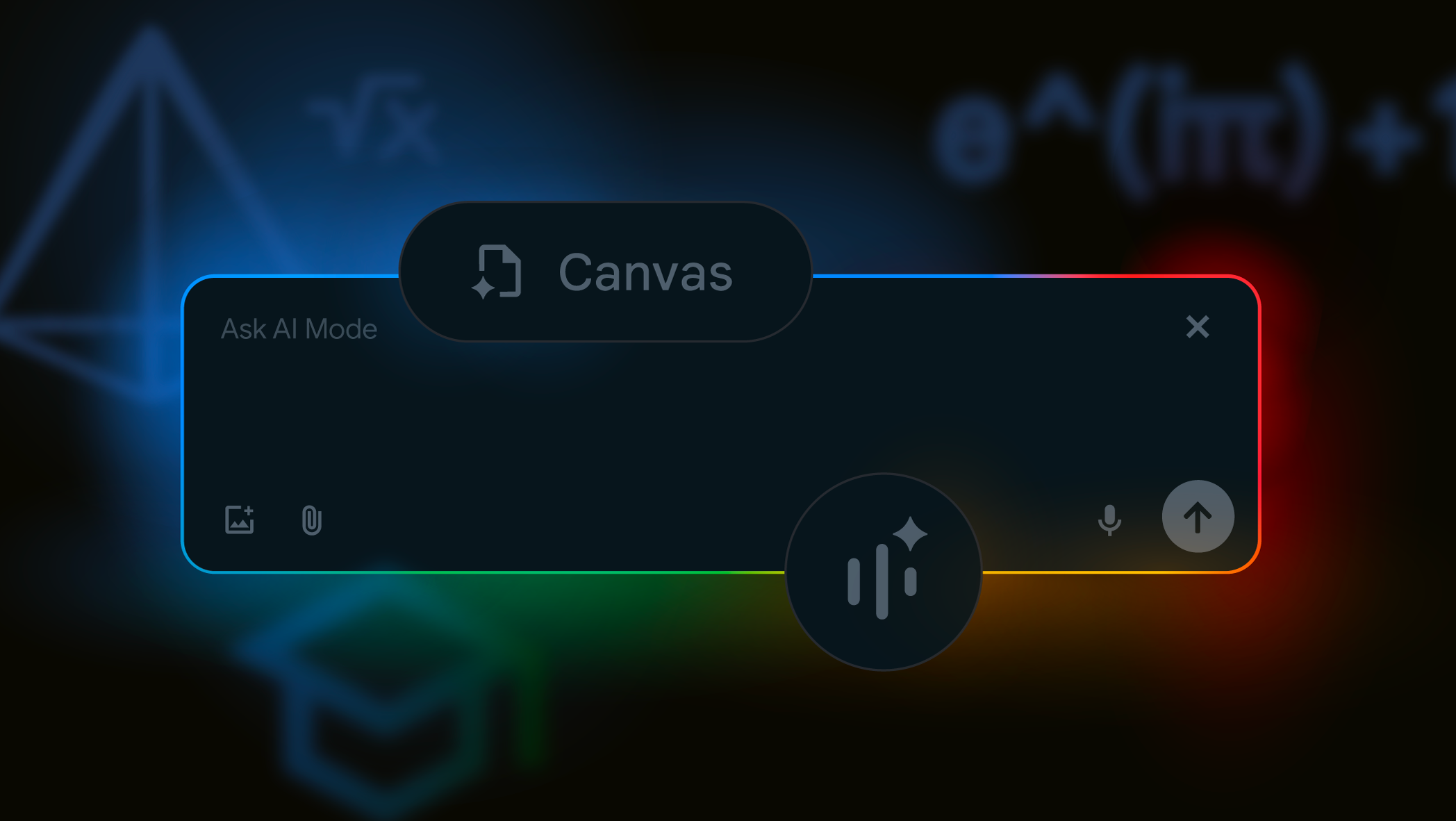
I gave Google AI mode a simple prompt: “Recommend the best gaming laptop for…” To give it a price position, I aimed for “under $1,000” and “under $2,000.” Hitting enter, it all looks pretty official — nicely laid out too.
This is what I’ll be doing for other key categories in computing too. New laptops, desktops and peripherals can get expensive, especially if you want anything particularly good that will last you a long time. So AI mode has to get this right…right!?
You may like
Spoiler alert: it doesn’t. It fumbles the ball in a big way.
The (somewhat) good
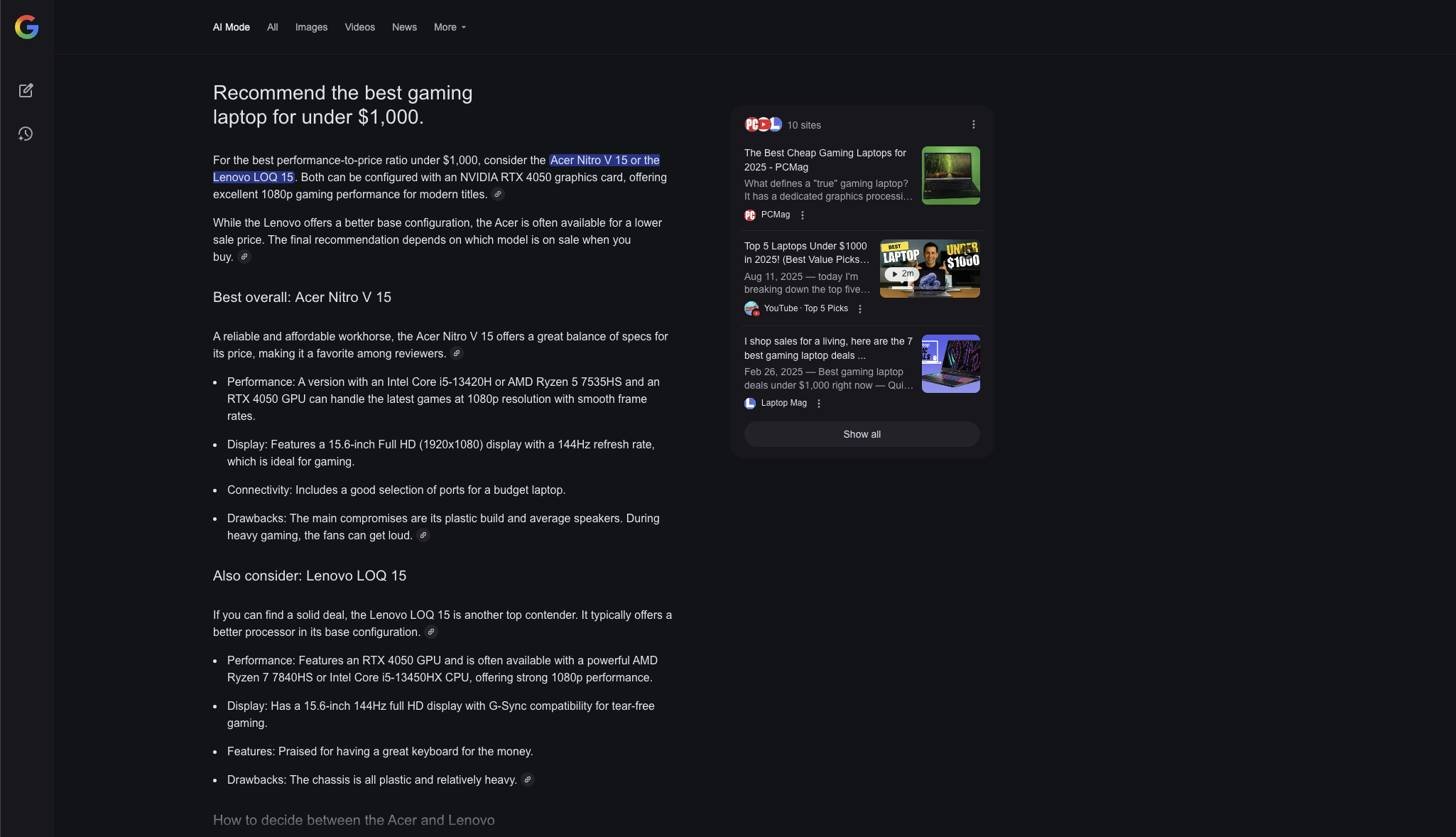
As you know, it’s perfectly possible to get the latest RTX 50-series gaming laptops for less than $2,000. For less than $1,000, there are some pretty impressive 40-series options — I’ll go into all of these later.
Well, let’s start at below a thousand bucks, and in all honesty, Google AI mode has made some good decisions here. Typically, this constrained price point puts you in this realm of specs: an RTX 4050, 13th Gen Intel Core i7, 16GB RAM and a 512GB SSD.
Both the Acer Nitro V 15 and Lenovo LOQ 15 are solid options sporting these specs. Personally, I’d push you towards the LOQ, as Lenovo has always made better laptop keyboards, and it really shows here.
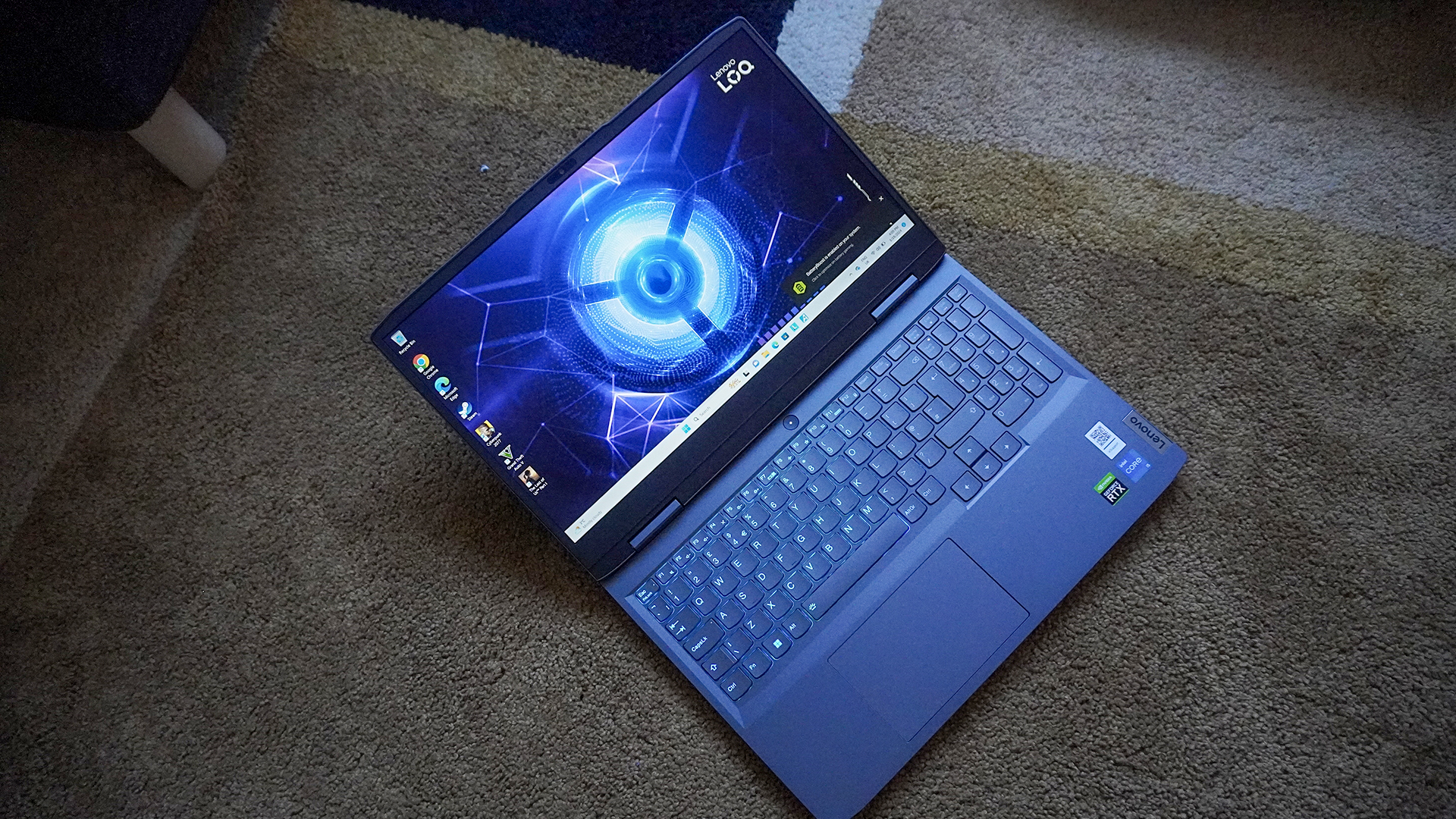
However, this is where we run into the first issue. Google AI is good and all, but it doesn’t seem to be too great at keeping up with recent developments, cross-referencing information from different sources or finding savings that satisfy the criteria.
For example, RTX 4060 laptops are regularly available for less than $1,000. I’d point you to the MSI Sword 16 for this for example, which with $200 off means you can get much more for your money. AI mode didn’t spot this, which means it may be good at finding editorial answers to your questions, but not that great at spotting savings to get you more bang for your buck.
The ugly
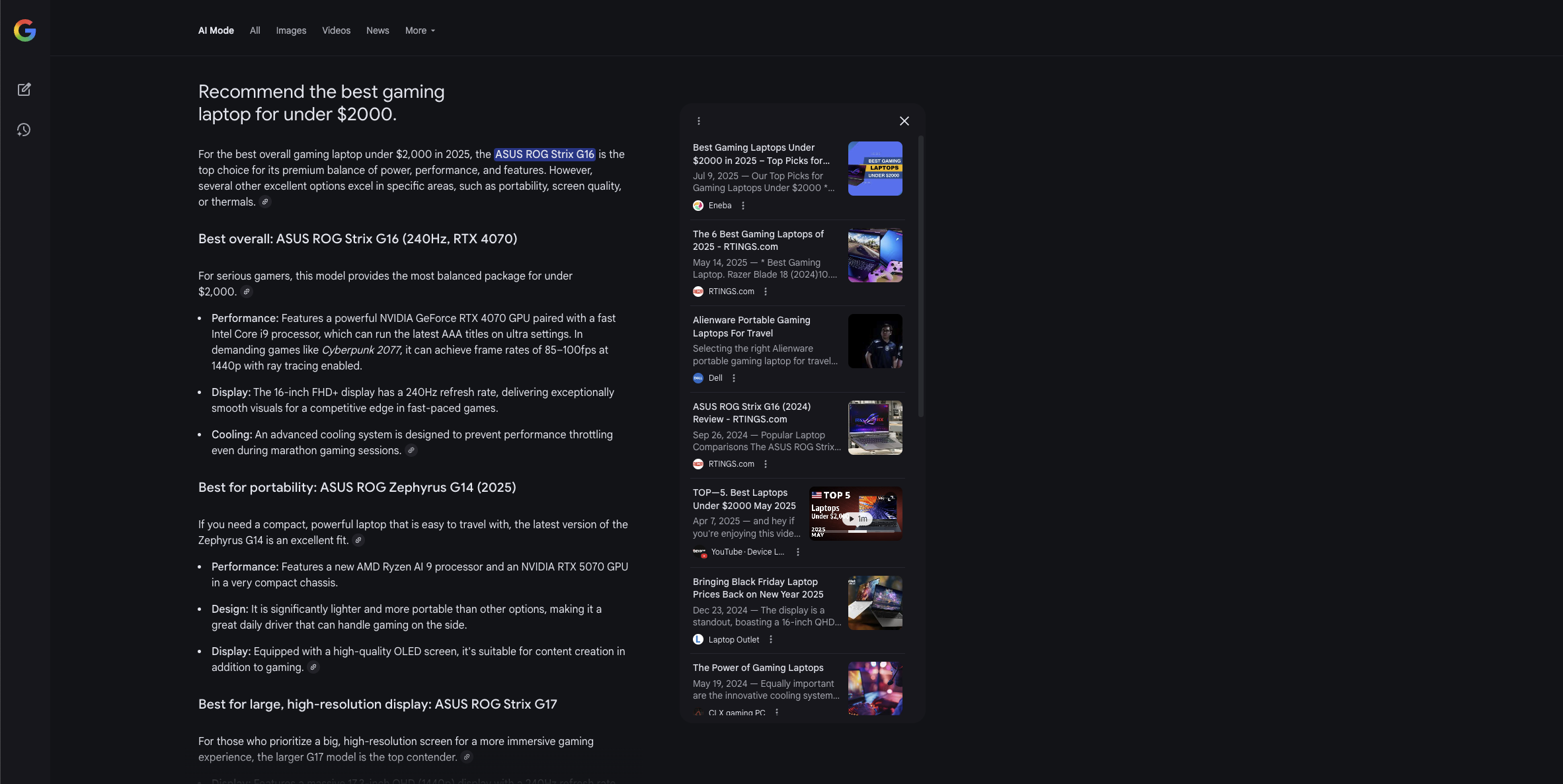
Then I turn my attention to the less-than $2,000 option. This is plenty of headroom to get something packing an RTX 5070, and maybe even an RTX 5080 if you look hard enough. So why on earth is Google AI mode recommending the Asus ROG Strix G16 with RTX 4070!?
Not only that, but a casual (and traditional) Google search will show this option actually blows past the $2,000 budget. Some hallucination has clearly happened here. That’s not to say the G16 is a bad laptop, but we’ve moved forward significantly since this came out last year. The recency context seems to be way off in what is sourced — highlighted by the fact a key source used in its search was a best laptops guide from April 2025.
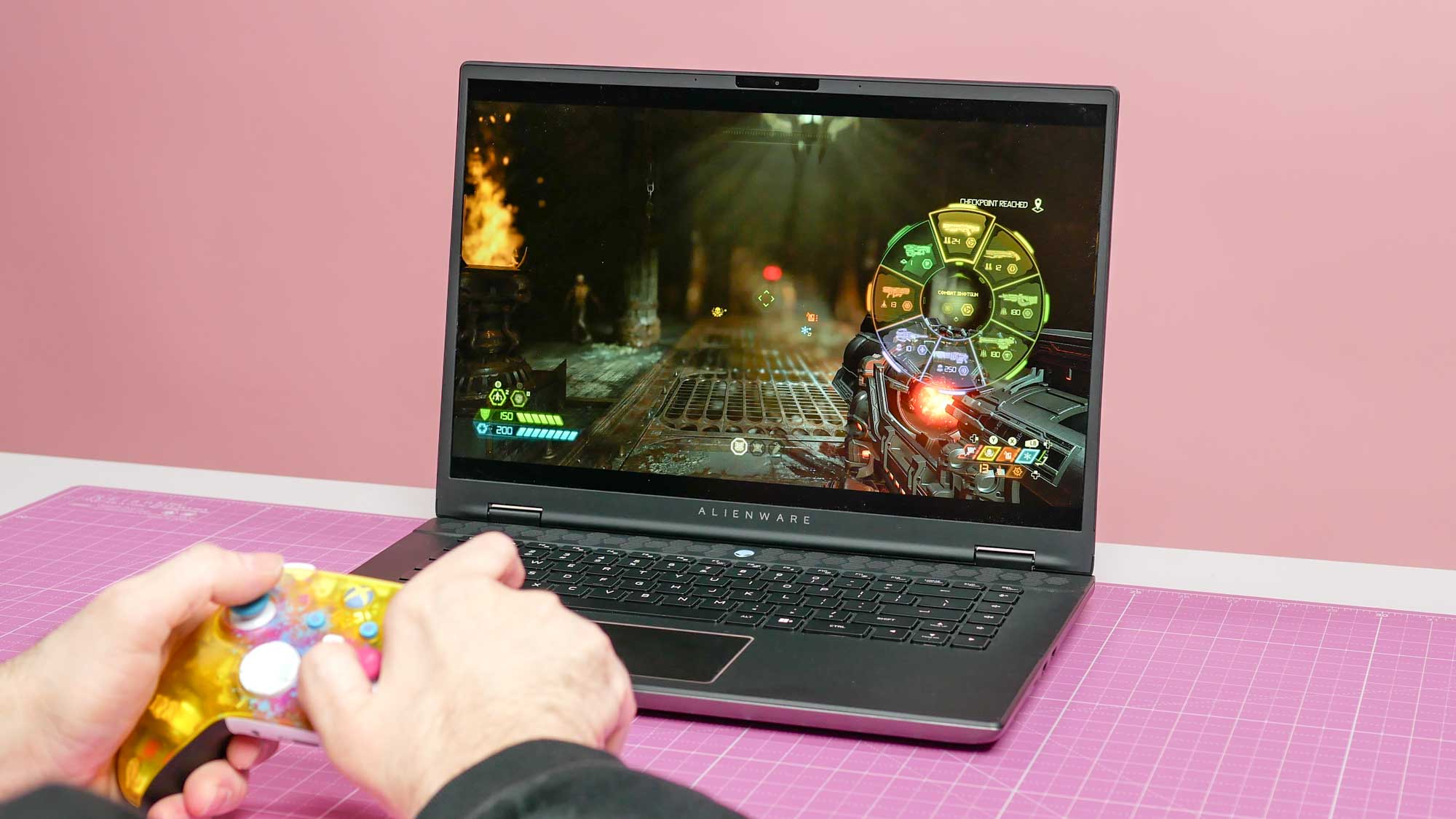
But most concerningly, where did the Alienware M16 R2 come from? I mean, it’s fine, but not something to write home about with a cheap chassis, loud fans and a dull display. Well, as it turns out, Google AI mode sourced this information directly from Dell’s website.
It scraped the retailer’s website and presented this (clearly biased) information as a straight-up recommendation. This is incredibly problematic as you’re being told to buy a laptop based on marketing materials alone.
I’m sure this could get better over time, but with AI mode essentially being a black box that has to be coerced over time, and given Dell built a page called “best gaming laptops” that this is being sourced from, it’s not been weighted towards real editorial expertise vs marketing tactics.
What is the fix?
How do we tackle this? Well, there are two key options to make sure you see us and other trusted outlets in your search results:
Follow Tom’s Guide on Google News: While Google search becomes increasingly AI-fied, Google News continues to be a good place to follow publications with a direct feed of news stories.Add Tom’s Guide as a preferred source: Google recently launched a feature to let you set your preferred sources. This maintains visibility of your trusted publications, and we’ve got the step-by-step on how to do it.
If you are in AI mode, just make sure you check the sources Google’s pulling its answer from on the side column — it pays (literally) to be careful that you’re not being hoodwinked by marketing messaging that has just been assumed to be trustworthy.
What you should actually buy
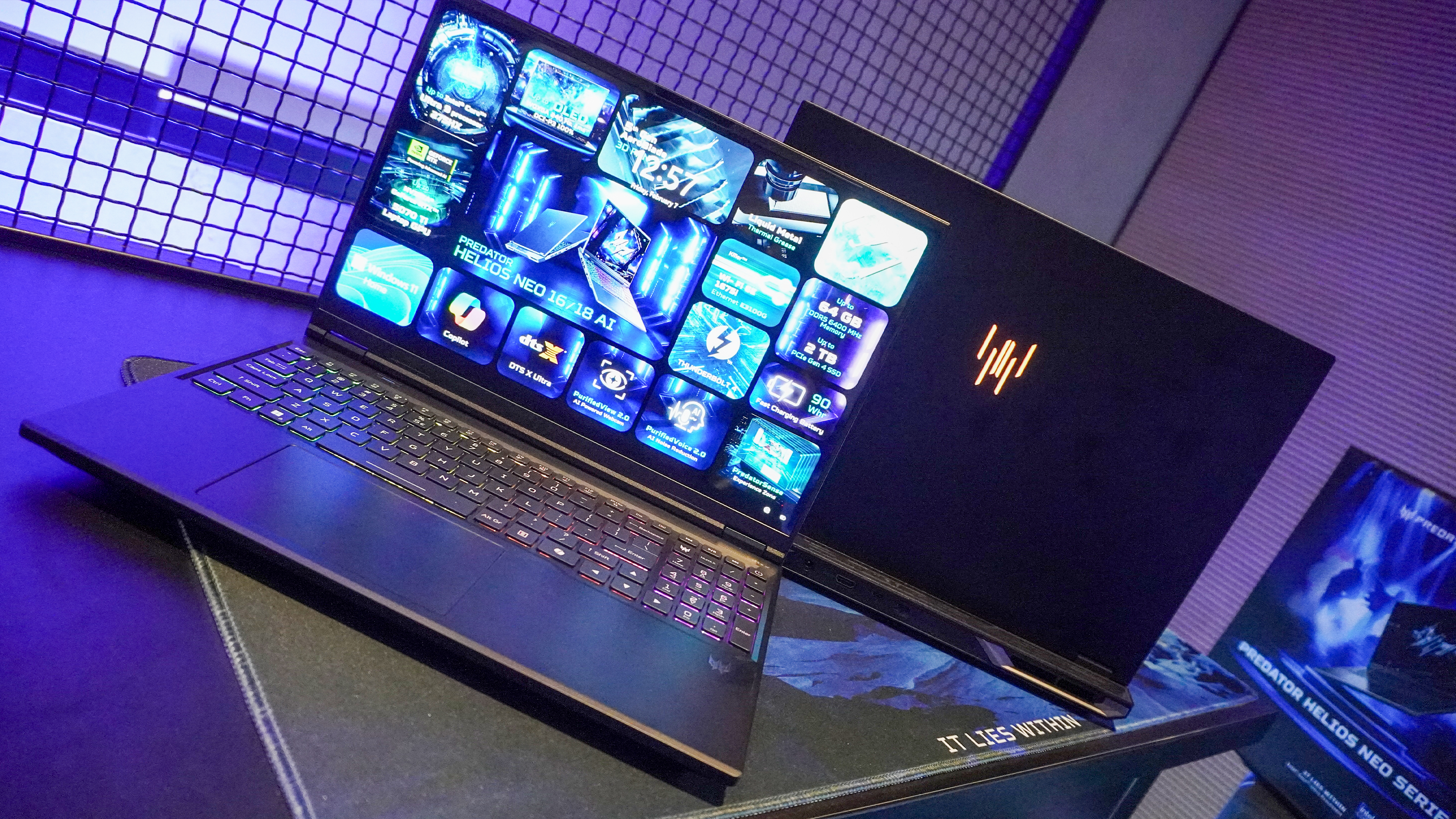
But I don’t want this to end on me ranting, without actually giving you advice. If you came here after being disappointed with the Google AI mode recommendations, let me point you in the right direction of what you actually should purchase at these prices.
Best gaming laptop under $1,000
Best gaming laptop under $2,000
More from Tom’s Guide
Back to Gaming Laptops

